S4 E6: Havi Kang on Narcissism and Gaslighting (Part 2 of 2)
Released October 26, 2021
During the rise of the “me too” movement, the phrase “gaslighting” has become prominent in relation to the issues women face. In the conclusion of our conversation with Havi Kang, we discuss why it’s important for women to seek treatment and ways she and her team provide a safe and nurturing environment for recovery.
Podcast Transcript
It’s making the victim believe something is wrong with them and they’re not viewing the world correctly. That’s what we experienced with our women coming through, is like, “I’m the crazy one. I’m the one that messed up the relationship.” So, we have to educate them and like, “It sounds like you’re doing things appropriately, but what your spouse is doing, not necessarily, and let me explain why that is.”
Welcome to Beyond Theory, a podcast powered by Meadows Behavioral Healthcare that brings you in-depth conversations with firsthand insights from the front lines of mental health and addiction recovery. I’m Dominic Lawson.
During the rise of the “me too” movement, the phrase “gaslighting” has become prominent in relation to the issues women face. In the conclusion of our conversation with Havi Kang, we discuss why it’s important for women to seek treatment and ways she and her team provide a safe and nurturing environment for recovery.
Let’s get out of the abstract and see how this applies in the real world. It’s time to go Beyond Theory.
Dominic: One of the things you said just now is financial abuse. Up until recently, I didn’t know that was a thing. I did not know. What does that look like?
Havi Kang: I can look like a variety of things. I’ve got a couple of cases right now and maybe I could just touch on those. Even if you’re in a business with your partner, for example, and maybe that your partner is withholding information about finances or demanding that you provide more or not giving you a look at the finances itself, like the bank statements, the expense reports, not being privy to that information. Another could be just not having any access to your joint account — if it’s even a joint account, or it could be under the partner’s name only. It’s like, “Tell me what you need, and I’ll just get it for you,” rather than being able to spend that money yourself.
I’ve had women who have never had a credit card, never had a bank account, because their husbands or wives have just kept that to themselves in some way. Providing an allowance is another one, too, and that’s all that they know. They don’t know that’s abusive. Here’s $20 for shopping this week for groceries for the kids and then for you or basic needs. If you need more clothing and you feel like you have to demand that of your partner: “I need $100 to go shopping because I have a job interview,” and they don’t give that to you; it can show up in a lot of different ways.
It could also just be the partner. Even if it is a joint account, the partner is spending all the money and lying about it. Maybe the partner has their own addictions, whether it’s gambling addiction, whether it’s sex addiction, whether it’s alcoholism and they’re hiding all of that. They’re spending loads of money on their own addiction and not being truthful with their spouse when they could be using their spouse’s money. Financial abuse could also look like, on the actual patient’s end as well, but they have maybe spent too much money as a way to cope with their own issues.
So, it could be a lot of different things. One of the testings that we do is what their views are on money, which I really like that. A lot of places don’t look at that, I feel like, or a lot of therapists don’t think to ask about that kind of stuff. Looking at your family’s beliefs around money is an important thing.
Dominic: It’s funny you mentioned that, because me and my wife, being people of color, that’s a conversation that we have all the time as far as how your parents are talking about money. When we talk to other people in our community, it’s always that sticky, icky feeling talking about money. It’s just funny that you mentioned that.
Havi Kang: That’s a big piece of it. Of course, where our beliefs will stem from is, “What is our family belief on money?” Is it that we have to be frugal? Is it that we can spend it freely? Is it like you have to earn it and then you can spend it? Is it like you’re not allowed to spend money at all, nothing is that important? So, it’s really important to look at the family of origin’s beliefs around money, around spending, even storing money. Even in my own family, and I’ve had patients, too, say their grandparents never had a bank account. They kept cash in the house hidden under the floorboards, in the ceiling, in a closet. That was their banks.
They’ve never known the concept of a bank or even trusting a bank. You can get a lot of abusive stuff coming from banks as well, like loans and such. It’s a big topic that isn’t discussed enough. Especially in a relationship, I think it’s an important topic to be discussing around finances. Again, we do a lot of work around intimacy in relationships, and so we have to look at that.
Dominic: In regard to relationships, I know another thing that you talk to a lot of your patients about is narcissism. Can you talk about that a little bit, if you will?
Havi Kang: A lot of our women coming in have been in some type of narcissistic abusive relationship, whether their partners are full blown narcissistic personality disorders or exhibiting some symptoms of narcissism. When it comes to narcissism and our women coming through, they don’t know much about narcissism. They don’t know that they’ve been gaslit. We have to educate them. Our patients who are coming in, they are the crazy ones in their relationship.
Dominic: If you will, for our audience, can you say what gaslighting is?
Havi Kang: Gaslighting is when you feel like, as the victim, the crazy one. You feel like what you believe and what you think is not right because your partner’s telling you it’s not right, so you fall for that trap. The word “gaslighting” comes from, is there was this movie back in the day. I couldn’t tell you what year it is, but it was definitely a black and white movie. I don’t know the full gist of the story, but the husband is trying to admit his wife, but she didn’t meet criteria to go to a psych hospital to get help, so he had to almost induce some craziness for her to start behaving in an odd way.
Back in the day, they had the gas lights outside of their house and that was their light. What he would do every day is he would turn it down more and more just every single day and then she would say, “What’s going on with the light? Is it going out or is something wrong with it? Do we need to fix it?” He’s like, “What are you talking about? There’s nothing wrong with it. It’s absolutely fine. You’re going crazy. Something’s wrong with you. You need to go to the hospital.” So, it means a lot more than that, of course, but that’s one example of this crazy making behavior that people with personality disorders can do. This to not just narcissists. It’s making the victim believe something is wrong with them and they’re not viewing the world correctly.
That’s what we experienced with our women coming through is like, “I’m the crazy one. I’m the one that messed up the relationship.” So, we have to educate them and like, “It sounds like you’re doing things appropriately, but what your spouse is doing, not necessarily, and let me explain why that is. Let’s talk about what’s a healthy relationship, and do you feel the criteria of a healthy relationship is fitting in your relationship or not? And if it’s not, then how do we make that happen? Is this the person you want to stay with or not?” That’s another whole thing that we have to deal with.
Some women are coming in wanting to divorce. Some people are coming in wanting a separation, and we can’t give them those answers. They will sit there and sometimes say, “Should I divorce my husband or my wife?” “I’m sorry. I can’t give you that answer, but we can help you figure out what you need and what you want and how to set yourself up to have a positive outcome.” So, it is a whole area. Again, that’s another core lab and lecture that we talk a lot about, too, is just providing a lot of education. It’s a dynamic that’s in a relationship that needs to be discussed, and I think we do a pretty good job of that.
Dominic: Thank you for sharing that. As we wrap up the Beyond Theory podcast, I’ve enjoyed our conversation a lot. I really appreciate your time. I’m curious. You talked about doing yoga earlier and stuff like that. I perused around your Pinterest page a little bit to see some stuff. I want to see how you maintain your mental health and stuff like that. But I’m just curious about the yoga. Do you still practice yoga? Kindly talk about that practice.
Havi Kang: I still practice. I was doing yoga, teaching a lot more. I was doing a lot of outdoor free yoga in the park type of thing. I just ask my friends, my family, and people who’d be interested. I was at a studio. I knew a lot of people there, too, networking-wise. I was teaching a lot more before The Meadows took up a lot of my life. It’s a demanding job. It’s a heavy job. Even in the beginning when I was at The Meadows, I had a second job at the same time. So, I can recognize my own workaholism and my own perfectionism. I’ve been working on that, and that’s why I had to let go of some of those things.
Yoga training and being able to provide that to people was one of the things that I had to let go to be able to really work on my career. I haven’t let it go forever. It’s something that I still want to do in the future. My future goal is to be able to combine therapy and yoga. Movement all ends in the same place, whether it’s a session or it’s in a studio and we’re working on trauma while doing movement. There’s lots of trauma-informed yoga nowadays. There’s a lot of healing services out there that can provide a lot of support for people struggling with PTSD, mental health issues. And so, that’s something that I really want to get back into and develop.
But yes, yoga is something that I still do. So having some type of movement, whether it’s the gym, whether it’s working out, whether it’s going for a hike, I like to travel a lot, too. I went to Antelope Canyon this last weekend, and so just getting out there. I have to maintain my own mental health and I have to practice what I preach and do the skills that I’m teaching the patients to do.
Dominic: Lastly, Havi, for those who out there who are seeking treatment and they don’t know how to get that treatment or they’re afraid of the stigma of getting treatment, can you speak to those people to close that out if you would?
Havi Kang: Absolutely. I was just saying this the other day. I wish every single person on this planet could come through treatment. I feel like this should be a staple. This should be part of our development as human beings. I feel like this stuff should be available in school, but it is the way that it is, and you have to come to a treatment facility. The feedback that I hear from our patients, they say the same thing, that everyone needs to come here. So, I want to break that stigma that this is a taboo, it’s bad, you shouldn’t come to treatment, but It’s such a learning experience.
I still grow, even as a clinician, as a director of this facility. I’m still growing every day. I still get to work on my stuff every single day. It’s a supportive environment where you’re there with women who struggle the way that you do. It’s such a powerful experience, just being in a place where you can relate to everyone and getting that support. I’ve heard so many times from women just getting outside of where they live, like the stressors that they deal with on a day-to-day. Being able to be away for that for a few weeks, even that is life changing. On top of that, providing the treatment and the care that we get to give them, they’re whole new people coming out of this program and it’s amazing to see that.
The emails that I get months after they completed their treatment that their life has changed in all these ways, that’s why we do this. I think that people can benefit so much from any one of our programs at The Meadows, especially women who have felt like they are able to speak up. We are definitely that place where we can give them that voice and have them share their truth, be validated, be cared for, and to let them know that they’re not crazy.
Dominic: Really quickly, Havi, if you would, obviously we can’t name names or anything like that, share one of those. Could you share one of those success stories, if you could?
Havi Kang: Yeah, absolutely. One just actually came across my email a few weeks ago and I’ve been really thinking about them. This is actually a client that I had at CBC when I was at the Claudia Black Young Adult Center. But again, I think all of our programs do an amazing job. This patient had come to us twice, back-to-back almost, lots of self-harm issues. It was a struggle in ways that this patient was not wanting to give up their self-harm because they felt like they couldn’t be themselves. The second time around that the patient came through, we dived in much deeper.
You go through so many avenues as a clinician, you assess this — “Is there anything here that we need to treat?” — and we did that with this patient. We went through so many avenues, and it just kept falling flat. What is going on? Why is this patient still struggling this way? Why is there no improvement with this patient? What is going on? It was that second time that that patient came around, and I’m so grateful that that patient was able to come through again. I started to look at gender issues and sexual orientation issues a lot more for this patient, and that was the biggest piece that this patient was really struggling with, and being true to themselves.
It hadn’t been touched on before. Just giving that patient the space to share who they really are, whether they choose to come out of the closet or not, that’s entirely their decision, but providing that space for them. I’ve got this email. We did a lot of work on this patient, who they really are, who they really wanted to be, and how they want to really express themselves. So, this patient was a woman but didn’t feel like a woman and wanted to be a man. This patient recently completed top surgery a few weeks ago. He sent me an email letting me know that and that they have been 10 months clean of self-harm and the happiest that they’ve ever been.
Reading those kinds of emails and knowing that’s how far that this person has come in their journey so far, to complete surgery and to have come out completely, is mind blowing.
Havi Kang is a licensed professional counselor and certified sex addiction therapist who is EMDR- trained and working on her training in Somatic Experiencing. For more information on the work Havi does at Willow House go to willowhouseforwomen.com,
Beyond Theory is produced and hosted by me, Dominic Lawson. You can discover more, including videos of some of our conversations, at BeyondTheory.com.
Finally, thank you for listening, and I hope you join us next time for another episode of Beyond Theory.






